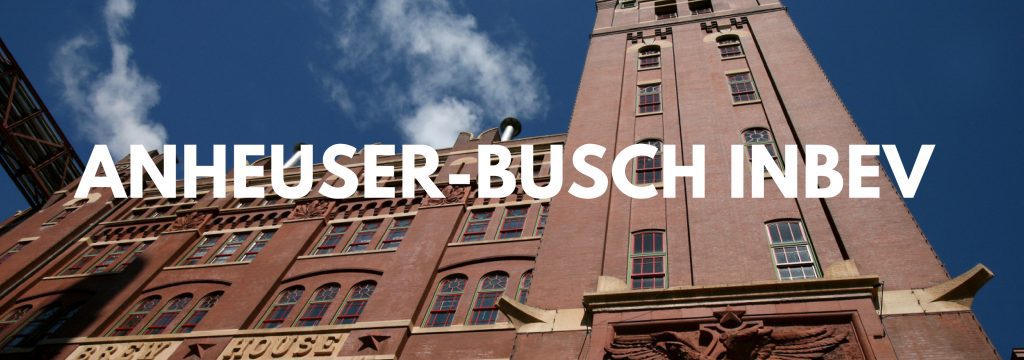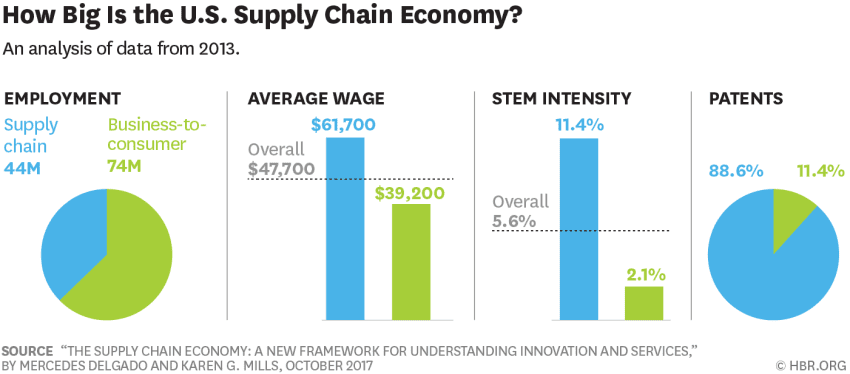Cryptocurrency Volatility, a Vacation App, and More – Boston News

Let’s explore some of the most interesting stories that have emerged from Boston business schools this week.
Digital Tulips: High Risks, High Rewards in ICOs – Carroll School News
Boston University Carroll School of Management Assistant Professor of Finance Leonard Kostovetsky and Ph.D. candidate Hugo Benedetti (’19) recently co-authored a draft paper that explores how the high returns associated with Bitcoin, for instance, are in part a byproduct of the uncertainty that surrounds cryptocurrency. But as crypto becomes clearer, the researchers note that “that effect might be declining.”
The Social Science Research Network published the duo’s paper, entitled “Digital Tulips? Returns to Investors in Initial Coin Offerings,” which finds that “startups set a low, low price at the initial coin offering (ICO) stage to compensate for the volatility. In effect, it’s an uncertainty discount that keeps the price down, which drives up the returns.”
You can check out the full article on the official BC website.
People Aren’t Using Their Vacation Time. These Alumni Want to Fix That – D’Amore-McKim News
Treehoppr, “an online platform that tracks accrued time off,” was founded by Northeastern University D’Amore-McKim grads Kevin Corliss, DMSB (’16), Douglas Franklin, DMSB/E (’16), and Christopher Kenyon, CCIS (’17), in response to the “uniquely American” reality of how few working professionals take advantage of “paid time off.”

Treehoppr, an app created by a trio of D’Amore-McKim alumni, hopes to solve the uniquely American issue of not taking time off of work.
In an interview with their alma mater, Corliss says, “We want to help people eliminate these barriers to travel. What are the things you always hear when you ask people about traveling? They don’t have the time, the money, or the know-how when it comes to a foreign country. We want to help people solve all those issues.”
Dive into the trio’s story here.
The Gourmet MBA – Suffolk Experience
Suffolk University recently published a profile on current Sawyer Business School MBA Danielle Health (’19), whose @BostonBehavior Instagram profile demonstrates her knack for monetizing that very 21st century ritual of the meal snapshot—one she’s parlayed into a full-time job at social media management company Metter Media.
Health explains that she generally approaches the manager of “each restaurant she wants to visit as a one-time business partner.” She explains that her Instagram affords restaurants quite “a lot of visibility for a pretty minimal investment.”
She continues:
“Bigger food bloggers might have 100,000 followers. But that doesn’t matter if the people aren’t in Boston. About 90 percent of my followers are local to the Boston area, and most are my age. So I can deliver a really targeted and high-value group to a restaurant that I put on my feed.”
Check out the full profile here.
MIT on the Problems with Twitter, and More – Boston News

Let’s explore some of the most interesting stories that have emerged from Boston business schools this week.
Marketers Take Note: When Too Many Choices are a Burden, Not a Benefit – Questrom School of Business News
BU Questrom School of Business Ph.D. alum Sarah Whitley recently co-authored a new Journal of Consumer Research paper with Associate Professor Remi Turdel and fellow Assistant Professor Didem Kurt, in which they discovered “that people typically want more choices when they’re buying for pleasure [and they want] fewer choices when they make a purchase for strictly utilitarian or functional reasons.”
The research dives into what is more commonly known as the Paradox of Choice. The idea crept into the market lexicon shortly after the release of the 2004 book The Paradox of Choice – Why More Is Less from psychologist Barry Schwartz, NYU alum and U. Penn Ph.D. The general idea Schwartz derived was that consumer anxiety could be caused by too many options. However, research from Whitley, Turdel, and Kurt reveal that it may only pertain to specific kinds of purchases, not simply overall.
Whitley says the major takeaway is that businesses can be more strategic if they know “what motivates the buying decisions of their customers.”
“For product categories where people feel that they have unique preferences, it may be worth it to have more variety. It may be fine to reduce the number of offered products where this is not the case.”
You can read the full article here.
Solving Twitter’s ‘Follow-Back’ Problem – MIT Sloan Newsroom
About four years ago, MIT Sloan Associate Professor of Operations Tauhid Zaman put together a social media experiment in which he used Taylor Swift’s friends on Twitter to “open the gates to her inner circle.”

Dubbed the “follow-back problem,” Zaman sought to understand “the underlying dynamics of follows on Twitter, [such as] what kinds of Twitter interactions matter the most when trying to get followers? And do overlapping social networks actually help build connections? If they do, then to what degree do they help?”
Zaman found that Twitters “who don’t follow many other people are unlikely to follow you back, while those who follow a lot of people are likely to follow you if you follow and retweet them.” He also found that if, for instance, “Swift follows somebody who, in turn, follows Zaman, then Zaman has a greater chance that Swift will follow him.”
The article notes that social media tools can “have a tremendous blast radius” in terms of their ability to powerfully influence the opinions of a whole country.
“In my opinion, this can be far more dangerous than conventional weapons which have a fixed blast radius. These are weapons, and I’m building efficient ways to use the weapons, so this has to be handled with care,” Zaman said.
Read the full article, the first in a three-part series examining new work about Twitter, influence, and bots, here.
How CEOs Manage Time – Harvard Business Review
Harvard Business School Professors Michael E. Porter and Nitin Nohria recently published a piece in the Harvard Business Review that examines how CEOs allocate their time.
According to the article, face-to-face interactions take up “61 percent of the work time of the CEOs we studied. Another 15 percent was spent on the phone or reading and replying to written correspondence. The final 24 percent was spent on electronic communications.”
The authors describe the CEO’s job as “relentless.” They write, “Given that work could consume every hour of their lives, CEOs have to set limits so that they can preserve their health and their relationships with family and friends. To sustain the intensity of the job, CEOs need to train—just as elite athletes do. That means allocating time for health, fitness, and rest.”
You can read the full article here.
Look Out for These Boston Internships

If you’ve read MetroMBA’s look at how summer internships play a crucial role for MBA students, you’re probably already familiar with the many benefits of interning during your MBA career. Between forging professional connections, gaining hands-on experience, and top tier salaries, MBA students have lot to gain from seeking out these opportunities. Boston internships manage to stand out, in particular, because of a wealth of excellent business school options.
Of course, the internship model is a win-win for all participants: students get the opportunity for professional experience, and companies get to work alongside emerging talent in the business world. Companies across the U.S. actively search for and recruit this talent. The need and capacity for interns, however, can vary from organization to organization. As students begin their search for the perfect internship, and can be important to take note of what companies are the biggest internship employers in their area.
Boston Internships for MBAs

Anheuser-Busch InBev (AB InBev), created ten years ago through the merger of Anheuser-Busch and InBev, is one of top hirers for MBA students in the Boston region. A Belgian-Brazilian beverage and brewing company, AB InBev has offices throughout the world, currently employing around 183,000 people. Given the global nature of their product, the company sponsors MBA and internship opportunities with a focus on global business. Each summer, the company offers a 10-12 week summer internship at their New York office, which often results in getting hired into the company’s Global MBA program—a one year high potential leadership program that prepares participants for quick career growth.
Anheuser-Busch InBev was one of the top hirers for MBA internships at both the Harvard Business School and the Sloan School of Management at MIT, two of the most highly ranked business programs in the world. At MIT Sloan, AB InBev employed nine members of the Class of 2017 as summer interns.

Founded 173 years ago in London, Deloitte remains one of the world’s top professional services networks today, providing tax, consulting, enterprise risk and financial advisory services throughout the world. As of 2016, Deloitte was recognized as the 6th largest privately owned organization in the United States.
With roughly 263,900 employees worldwide, it’s probably no surprise that Deloitte offers plenty of Boston internships. Deloitte Consulting hired six MBA interns from MIT Sloan for the summer of 2017, and also made the lists of top employers for F.W. Olin, Harvard, and Suffolk University’s Sawyer Business School.
The vast number of student interns employed at Deloitte may be a reflection of their vast internship program, which include programs like the Deloitte Consulting Immersion Program, Deloitte Women’s Leadership Launch, and the Advanced Degree Veterans’ Forum.

At Boston University’s Questrom School of Business, 108 different companies hired 140 students for internships in 2018. CVS Health, also an employer for MBAs from Harvard Business School and Babson College’s F.W. Olin Graduate School of Business, hired five students from Questrom for summer internships, making it the number one employer for that school.
CVS Health Corporation, headquartered in Woonsocket, Rhode Island, has grown since 1964 into a top Fortune 500 company with more than 246,000 employees and $177 billion in annual revenue. In December 2017, the retail and health care company also made headlines when it acquired health insurance mega-company Aetna for $69 billion.
CVS Health offers a number of MBA internship programs for MBA students, depending on their interest within the field. Among them are the CVS Year-round internship, Spanish Immersion Summer Internship, and Specialty Clinical Innovation Internship. CVS also believes in students growing their careers with the organization, which likely means greater opportunity for an internship to turn into a long term career.

With the growing popularity of jobs within the healthcare administration field, it should come as no surprise that one of the top employers for MBA internships in Boston is the Boston Children’s Hospital. The hospital, founded in 1869, has been ranked by the U.S. News & World Report #1 in eight of ten clinical specialties. For 2018-19, it was named the country’s number one pediatric hospital.
The hospital is affiliated with Harvard Medical School, so it’s likely no surprise that they are a top employer of MBA students as well, learning about the other side of health care. They are also one of the top employers for MBA students at Northeastern’s D’Amore-McKim School of Business, which requires students to pursue a corporate residency for six months of its 24-month full-time MBA program.
Facebook COO Sheryl Sandberg Arrives at MIT, and More – Boston News

What’s happening at the best Boston business schools this week?
Asia Is Ripe For Investments. Here’s How U.S. Companies Can Capitalize – D’Amore-McKim Blog
The Northeastern University D’Amore-McKim School of Business recently published an overview of the recent Emerging Markets’ Symposium, in which Ravi Ramamurti, University Distinguished Professor of international business and strategy brought together seven CEOs and corporate executives to unpack the discussion topic, “On the Rise of Asia: How Should U.S. Companies Respond.”
Jimmy Weng, DMSB’07, and Credit Suisse’s current head of offshore investment strategies, told the audience via conference call that he believed “Asia’s economy is entering a “supercycle” of market boom.”
Symposium organizer Ramamurti said, “China is leading the way to a new era in globalization. The headroom for growth in Asia is very significant.”
You can read more about the symposium here.
Sheryl Sandberg On Facebook’s Missteps and What Comes Next – MIT Sloan Newsroom
Facebook COO Sheryl Sandberg delivered MIT’s 2018 commencement address last week and used her speech as an opportunity to come clean and share the lessons learned from her company’s recent Cambridge Analytica data mining imbroglio.
She told the audience, “It’s painful when you miss something — when you make the mistake of believing so much in the good you are seeing that you don’t see the bad. It’s hard when you know that you let people down.”

Sandberg speaking at the 2018 MIT commencement / Photo via Dominick Reuter
“The larger challenge is one all of us here today must face. The role of technology in our lives is growing — and that means our relationship with technology is changing. We have to change, too. We have to recognize the full weight of our responsibilities.”
You can read more Sandberg’s commencement speech and check out footage of the event here.
A Big Problem with Big Problems – Questrom Blog
Boston University Questrom School of Business associate professors Stine Grodal and Siobhan O’Mahony recently published a new study that explores how “competing and misaligned goals—combined with a lack of oversight—can derail an ambitious vision.”
In their paper “How does a Grand Challenge Become Displaced? Explaining the Duality of Field Mobilization,” Grodal explains how common “interest misalignment” can be when it comes to tackling big problems.
“The academic community might agree to focus on a grand challenge, but [individual] professors are also interested in publishing in top journals and funding graduate students, which can create misalignment between a grand challenge and a community’s existing goals.”
It’s also much easier to “develop advances in existing areas” rather than explore uncharted terrain. “People graft on to the grand challenge but are rewarded by the status quo, and end up pursuing goals that are closer to their existing work.”
Oversight is key to keeping researchers on track. Grodal notes, “With little overarching supervision, it shouldn’t be a surprise that communities found plenty of reasons to support their own missions more robustly than the mission of the grand challenge.”
Read the complete article and study here.
What They’re Saying: Spring Break is Sadly Almost Over

While the East Coast of the U.S. is catching up with another pleasant April storm cyclone, the rest of the business school community is back at work, shedding off the sunburned skin of a spring break well had. With the end of the formal academic year drawing near, students are preparing for the home stretch.
Check out some of the things business schools around the U.S., Canada, and UK are saying about the end of spring break and what you need to know before the academic year closes out.
Spring Break is almost over. It’s time to start thinking about Summer! Register tpdayfor @BaruchCollege #summersession courses & finish your degree early! #BaruchSummer18 #BeBaruch #academicexcellence pic.twitter.com/UJWNEyy7kU
— Baruch College (@BaruchCollege) April 4, 2018
Snowy spring break! #LeBow MBA & MS students are in Romania meeting industry leaders, including @fitbit. Check our Instagram story for live updates. pic.twitter.com/anS73QiRQl
— LeBow College (@LeBow) March 26, 2018
It’s OFFICIALLY spring break! Our MBAs will be in China, Colombia, and Brazil getting a hands on #GlobalBusiness experience 🗺💼✈ pic.twitter.com/BDaPceTOCa
— Johnson at Cornell (@CornellMBA) March 31, 2018
From climbing volcanoes to discovering secrets of luxury marketing, spring break for some Questrom students was about enhancing their business acumen through cultural immersion. https://t.co/lA6oQsdOCB
— BU Questrom (@BUQuestrom) March 29, 2018
It’s extra quiet at the #RadySchool during Spring Break! We miss our students, but hope you are enjoying your break! pic.twitter.com/Kk2LaYMLk2
— Rady School (@RadySchool) March 28, 2018
MIT Explores Happiness, and More – Boston News

Let’s explore some of the most interesting stories that have emerged from Boston business schools this week.
Probing the Origins of Happiness – MIT Newsroom
On the #InternationalDayofHappiness, Kara Baskin at the MIT Sloan School of Management explored the new book “The Origins of Happiness: The Science of Well-Being over the Life Course,” which was co-authored by MIT Sloan Ph.D. student George Ward. Talking about his work, Ward explains how global governments have been attempting to tap into the data of happiness in hopes of shaping future policies.
“We wanted to bring together this body of work in a systematic, quantitative way,” he explains. “Often, these are single studies that say ‘x’ is important for happiness; ‘y’ is important for happiness. In this book we try to provide an overarching framework that documents what makes for a satisfying life.”
“On the policy side,” he continues, “more and more countries are using well-being data in the real world. As we speak to policymakers, they often ask the question: ‘Look, we’re measuring this now and we have the impetus to improve these figures, move up these tables of happiness, and make our citizens enjoy their lives more. What can we do?'”
You can read the rest of the Ward interview here, and grab a copy of “The Origins of Happiness: The Science of Well-Being over the Life Course” today.
The Supply Chain Economy and the Future of Good Jobs in America – Harvard Business Review
The Harvard Business Review recently published an article from Mercedes Delgado and Karen Mills that outlines the increased role service suppliers will play in what some have dubbed the “supply chain economy.” Supply chain industries are simply “businesses that manufacture parts to be used in a final good,” like plastic injection molders and metal stampers.

These industries “have a crucial role in driving innovation and creating well-paying jobs,” in part because they “have downstream linkages to multiple industries, which allows the innovations they create to cascade and diffuse across the economy, potentially increasing the value of those innovations.”
Read more about HBS’ policy suggestions to emphasize “suppliers’ access to skilled labor, buyers, and capital” here.
BU Grad Schools Among Nation’s Best – BU Today
Several schools in the Boston metro saw a nice rankings boost in the recently release U.S. News & World Report Best Business Schools 2019 list, with the Questrom School of Business at Boston University leaping up two spots overall from last year, up to 42nd overall. The school’s part-time program also finished 10 spots better than last year, coming in 32nd overall.
In a release, Kenneth Freeman, Allen Questrom Professor and Dean in Management, said, “Rankings are inherently imperfect, but we appreciate the acknowledgement of the quality and reputation of our students, program, and alumni. Each year, we adjust our curricular content in response to student needs and our increasingly engaged corporate partners to create experiential opportunities to bridge the classroom and industry.”
You can catch up on the rest of BU’s graduate schools in the new ranking here.
